Unusual holiday reading
Dear readers!
The winter holidays are approaching, and we are preparing to meet them among the dearest people.Вut these days there will be time not only for family fun, but also for solitude.
After all, on the eve of the new year’s birth, we find ourselves, metaforically, out of time, face-to-face with our soul and eternal truths. This is a time of meeting with yourself, traveling along the paths of consciousness, where everything you meet leads to a reassessment of yourself, your world and life in general.
Good guides and companions on this journey will be the books that we offer you to read at this sacred time. About love and compassion, self-knowledge and the meaning of life, about Chaos and Cosmos as the foundations of being – in our New Year's review.
Jonathan Safran Foer “Extremely Loud & Incredibly Close”
“You cannot protect yourself from sadness without protecting yourself from happiness”
Traveling is like a small life, so our journey will start from childhood.
Imagine that you are nine years old, you are a New York boy, a special child who is trying to find answers to questions, could birds fly if there wasn’t someone, somewhere, laughing, why nobody build self-assembling skyscrapers so that there are no more terrorist attacks, and why does mom arrange party, even though she's supposed to wear heavy boots. And most importantly – what secret does the key belonging to a certain Black hide, the key, which was lying around in the things of his deceased father?
Foer's novel is a life perceived with extraordinary poignancy and paradoxicality, where the world sounds "terribly loud", although one of the main characters is voiceless, people who love each other cannot break the wall between them, the phone becomes a grave for voice messages, and a frozen can rope phone stores a declaration of love. “Extremely close” – although in this world, close people are separated by floors of skyscrapers and telephone wires, years and distances, life and death.
The screaming name conveys the painful worldview of a boy with Asperger's syndrome, who defines so much for himself through “extremely” and “incredibly”, and also characterizes the illusion of belonging to world grief. This grief is broadcast through the stories of great tragedies – the bombing of Dresden, Hiroshima, World Trade Center. Everyday step, their consequences enter the life of a child locked in a cage of his emotions and feelings – and through the pain of his own and others' loss, he gradually learns empathy and love.
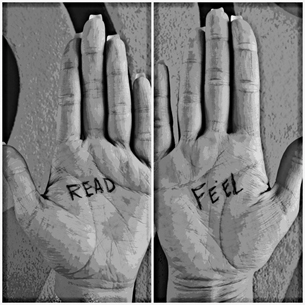
Illustration for the novel from J. Foer's fans
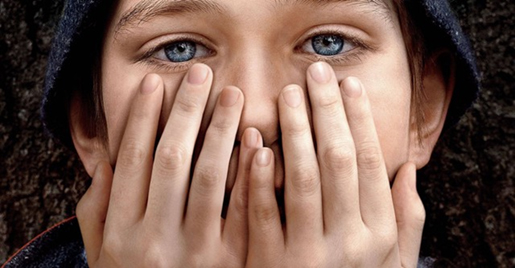
Promo-photo for "Extremely Loud and Incredibly Close" by Stephen Daldry, 2011
Daniel Keyes “Flowers for Algernon”
We continue the series of books about children's worldview and non-childish problems with a novel about the limits of the human mind and humanity. And our character is a grown child, 37-year-old floor cleaner Charlie Gordon. Throughout the book, his story is intertwined with the story of Algernon the mouse, the subject of an experiment to increase intelligence, in which Charlie also participates. As a result of the operation, Charlie's IQ grows from 68 to 185, and he is rapidly overtaking his "creators", Dr. Strauss and Professor Nemour. Soon the destinies of the man and animal will be tragically reflected in each other.
The fantastic setting and exceptional circumstances have a simple purpose – to help the reader see the problem of love as a Christian virtue: without masks, without play, without conditions. To remind us that deep down in our hearts we are all naive children and continue to believe in goodness. To show that simplicity can easily coexist with the real cosmos, and each of us is an inexhaustible treasury of potential, to which you just need to choose the right key.
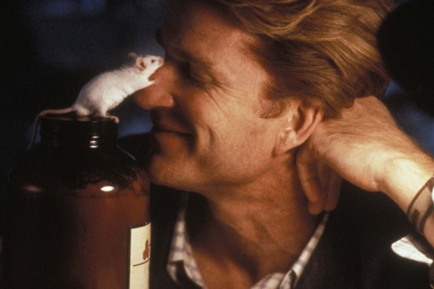
Frame from "Flowers for Algernon" by Jeff Bleckner, 2000
Together with the character, the reader will have to think about whether there is a limit to development, after which a human being is undoubtedly defined as a “personality”, find out the reasons for the cruelty and indifference that Charlie and his relatives encounter, and try to find contact with his inner wounded child. Finally, together with Charlie, we will answer the question of whether the Universe is worthy of risking the path of knowledge for its sake – if the increase in knowledge leads to an increase in sorrows.
After all, as Jonathan Safran Foer said in the words of one of his characters, “You cannot protect yourself from sadness without protecting yourself from happiness”.
“Cras amet qui numquam amavit. Quique amavit eras amet”
From rainy New York with its futuristic relief of skyscrapers and spiers, we are going to the beautiful Greek island named Phraxos.
Here begins the story of Nicholas Urfe – a bored cynic who considers himself a poet and a rebel philosopher, but in his heart admits that "he had got away from what he hated, but he hadn’t found where he loved, and so he pretended there was nowhere to love”. Nicholas neglects life, it fades to him even on the dazzling Greek island and turns into survival.
On Phraxos, Nicholas flees from the past, from the memories of his father and from his last lover, Alison. In Greece, he searches for an imaginary life, a new meaning and a new mystery - and suddenly finds even more than anything he dreamed of.
The mysterious Maurice Conchis, as an invisible puppeteer, guides Nicholas through a series of riddles and tests of will and psyche, which make him lose his sense of reality. “The Magus” Conchis creates the greatest play of all time, in which there are no concepts of actor and spectator, and life imitates art. Nicholas is inevitably approaching his intended point. This journey will lead him to the very depths of the subconscious, from where he will never return the same.
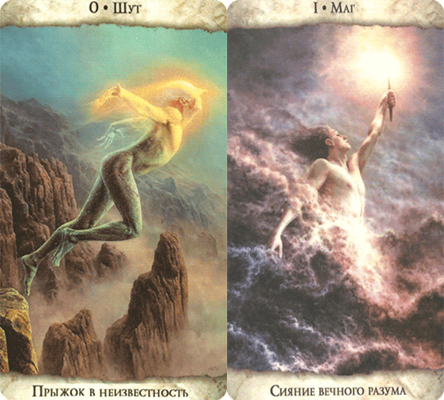
Major Arcana Tarot - allusions to the main characters Nicholas Urfe and Maurice Conchis
Our journey ends with a story, the character of which takes on the functions of the author and decides to “rewrite” life. Thus, Ian McEwan explores the theme of love in various forms.
Sisters Cecilia and Briony are very different from each other. Cecilia stands firmly on her feet, she is honest with herself and others, and she loves boldly and selflessly. Young Briony dreams of becoming a writer. She is immersed in herself and is ready to believe the fiction that complements the imperfect reality. Briony gives in to her dislike for Robbie, Cecilia's lover. She accuses him of a crime he did not commit – and she will pay for it all her life...
The pearl of the modernist trend, Ian McEwan's novel raises the problems of the fragility of human life, the possibility of happiness and the inevitability of world catastrophes, as well as the question of the equivalence of fiction and reality, characteristic of modernism.
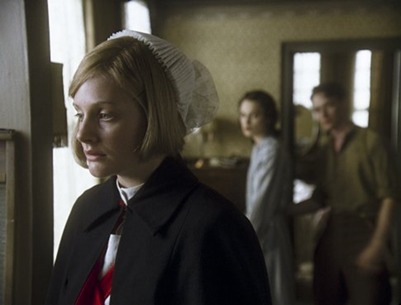
Frame from the film "Atonement" by Joe Wright, 2011
If the writer is a semblance of the Creator, can he correct the imperfection of reality by removing tragedy from life and returning justice, so that a new story inspires new generations of readers – and in the end becomes more important than two broken destinies? Or is it the utopia of an artist who builds the ivory tower around himself and does not want to notice the flaws in life?
Ask Briony. Just do not listen to what she tells you, because this girl is a master of recreating reality. Listen to the shades of her intonation, catch the shadow that slid across the absent-minded pale face, do not miss the confusion in her eyes. And when you hear the answer – decide for yourself whether you are ready to agree with him.
After all, history is written by the winners, and what wins is always considered to be true.
“How can a novelist achieve atonement when, with her absolute power of deciding outcomes, she is also God <…> There is nothing outside her. In her imagination she has set the limits and the terms. No atonement for God, or novelists, even if they are atheists. It was always an impossible task, and that was precisely the point. The attempt was all”
Text A. D. Kulikova, fiction lending library